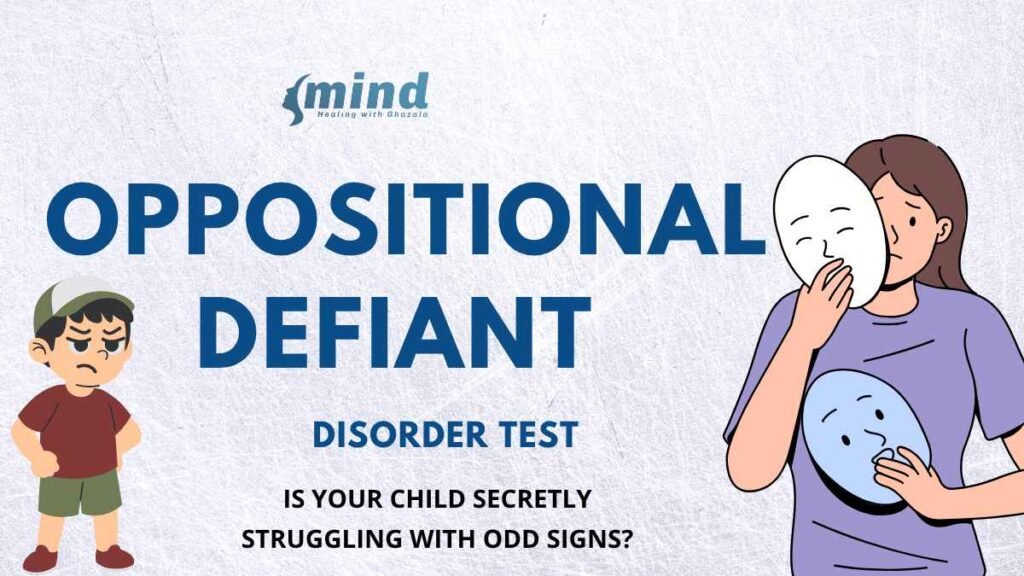The Oppositional Defiant Disorder (ODD) Test for Parents is a carefully designed self-assessment to help identify behavioral patterns in children aged 5 and older. If your child often argues with authority figures, refuses to follow rules, or exhibits anger and revengeful behaviors, this test can help you gain clarity about potential symptoms of ODD.
This test is not a diagnostic tool but a helpful screening method to prompt early awareness, which can be essential for guiding emotional development and seeking professional support.
What Is Oppositional Defiant Disorder?
Oppositional Defiant Disorder (ODD) is a behavioral condition marked by persistent defiance, irritability, and argumentativeness toward authority figures. It typically begins during early childhood and can interfere with a child’s relationships, education, and overall emotional growth if not addressed early.
Children with ODD often blame others for their mistakes, struggle to follow rules, and may become easily annoyed or vengeful. While it is natural for children to test boundaries, consistent defiance and emotional volatility might indicate a deeper concern.
Common Symptoms of ODD
- Frequent temper tantrums or angry outbursts
- Excessive arguing with adults, especially those in authority
- Active defiance and refusal to comply with rules or requests
- Deliberately annoying others
- Blaming others for personal mistakes
- Holding grudges or being spiteful
Causes of ODD
ODD is typically caused by a blend of genetic, biological, and environmental factors:
- Biological: Neurological differences and neurotransmitter imbalances
- Psychological: Poor frustration tolerance, impulsivity, or insecure attachments
- Environmental: Harsh parenting, inconsistent discipline, trauma, or family conflict
Instructions for Taking the ODD Test
This test is intended for parents, guardians, or educators concerned about a child’s behavior over the past 6 months. Please answer each question based on how frequently your child has displayed the described behavior.
This tool is a screening instrument only and does not replace professional diagnosis or evaluation.
[ld_quiz quiz_id=”6548″]




1 Comment
Alright, time to explore 7betgames. Hoping they have a solid selection to keep me entertained. Variety is the spice of life! See for yourself at 7betgames